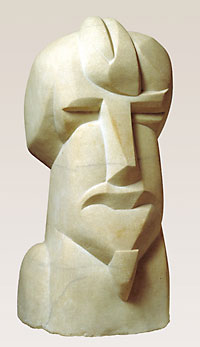Years before Gegôré was overthrown, I sensed that it would be overthrown. It was somewhat obvious that the young lad, who is now the self-appointed president, was making strides, gaining energy, and convincing the public of new ways to run the country. So early on I knew I would I have to move. Luckily, I met Tom Holmes through our "literary wormhole" (vide infra). He told me places to go, eventually Brockport, NY, and he also sent me books to read. I've been reading voraciously in American poetry, especially in contemporary American poetry. Recently at AWP (vide infra), we had a discussion about horizontal and vertical poets. And here I would like to think on the page about it. So here goes.
I want to speak to poets about these angles of writing — horizontal and vertical. Neither has to do with content or how the poem moves or with Li-Young Lee's vertical moment. These observations/ponderings will deal with how we poets write, most especially the younger poets — somewhere around 40 and younger.
From what I've read and know of your (American and western poetry), most of the older poets — over 40, over 100, six-feet under — wrote with pen or pencil on paper. They stared down at the page. Their eyes staring into the words/page (perhaps beyond). They hovered over what they wrote and revised. The back of their heads faced the universe, gods, and infinity. Of course there are exceptions — Pound typing in prison camp near Pisa, Dr. Carlos on his typewriter composing those triple lines. Pound and Dr. Carlos (W. C. Williams) faced the page and stared with a smiliar intensity as the pen/pencil poet. Poets like Ez and Dr. Carlos are horizontal poets. The former (the pen/pencil poets) are vertical poets.
Today there seems to be more horizontal writers — and many of them write on the computer screen, as I am doing now. (Perhaps we should call them neo-horizontal poets as they use the screen instead of a piece of paper curling in front of them.) The neo-horizontal poet stares into the screen. So how does this new relationship with the written word do to the new poetry?
This isn't a question about the computer. No! I think all of us poets eventually use the computer. For instance, the veritcal poet (or should I call them the neo-vertical poets, as we shall see why). Typically, the neo-vertical poet writes as their predecessor verical poets, however the young vertical poet will eventually revise on the computer screen (hence neo-vertical). Typically (for the seond time ... hey, I'm getting somewhere, I think), the neo-vertical poet will write by hand write and revise and revise and revise until they think the poem is done. At that time, the neo-vertical poet will take their piece of paper with the final poem to the computer and type the poem on the screen. Now, the poem can be seen on the screen. Now the poem's shape can be approximated as to how it will appear in print in a literary journal or book. They can with ease and brevity style the shape. They can continue to sculpt the poem into the shape they need — a shape that fits their need, the poem's need, or the content's need. They can, oddly enough, arrive more quickly to the poem's organic form. (How odd is that?) They can then print the poem to assure what the screen suggests. They can easily grasp how a reader will read the published poem. How the eye will move in relation to what the ear hears. They can then align the eye-ear movement or they can create a greater tension between eye-movement and ear-response.
So what does this all mean?
Well, there are now more horizontal poets in America than ever before. As far as I can tell, this horizontal (neo-horizontal) movement is neglecting the universe. What I've noticed is the dying of the lyric (at least comprehensible, non-ellipitcal lyric) and the predominance of the narrative, especially the narrative about the individual. There is nothing wrong with any of this, except the universe is being neglected and the lyric is disappearing. (The lyric is your oldest form of poetry, no?) With the neo-horizontal poets, there is more dedication to time instead of the obliteration of time. I mean, don't all us poets want to obliterate time? When are we at our happiest? When we are writing. When we come out of our half-unconscious, mostly hypnagogic, state and realize that hours have gone by, when it only felt like 20 or 30 minutes. The lyric poem best destroys time.
I'm not saying the vertical poet can't be personal and narrative. They have been. But they are more often in both veins lyrical and narrative. (I'm including meditative under lyrical, by the way). But with the rise of neo-horizontal poet has come the decline of the lyircal poem and the connection with the universe.
So what I'm wondering here is whether our conduit (the back of the head (a receptor? a transmitter?)) is being severed from the universe. What I am wondering is how neo-horizontal poets are dominating the traditional vertical poets. What I am wondering, does the neo-horizontal poet tend toward the narrative, personal, and social? and if so, how can they more often talk to the universe?
Sunday, March 18, 2007
Subscribe to:
Post Comments (Atom)

No comments:
Post a Comment